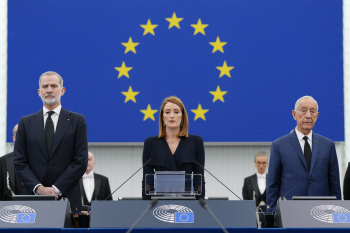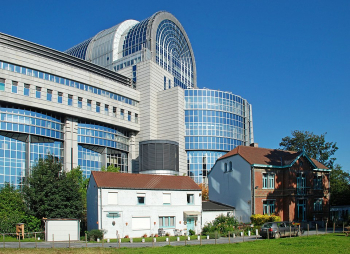
Can Georgia, Moldova and Ukraine be saved only if the Western Balkan countries join the EU as a single group?
This week Angela Merkel has made an announcement to state that six Western Balkan countries will join the EU, which is a positive sign for many governments in the region. Many of them are planning or are already implementing vital economic and political reforms for this purpose. However, the doors to the EU are open only to Albania that has been given the green light for membership, despite the fact that the government of North Macedonia has been asked to do more homework and wait its turn for a while.
What will the process of accession to the EU for these six countries look like? Apparently, the governments of France and Germany see no other way than the slow and gradual accession of new EU member states. Apparently, it will take at least three years for each country to join in. It is hard to say whether this is a lot or a little. However, it is understandable that this will take decades.
Nevertheless, it is hard to get rid of an idea that is just in the air. Should the EU repeat the "feat" of 2004 when ten countries of Eastern Europe joined the EU at once? The Western Balkan countries are extremely similar to each other, as they have experience of being within a single state and have much in common in terms of their economic and political development. The accession of six countries to the EU as a single group will make their integration into Europe faster and more irrevocable and, more importantly, will help strengthen the position of democratic forces in the post-Soviet countries, such as Georgia, Moldova and Ukraine.
If the governments of these countries realize that the dialogue about their integration into the EU will begin no earlier than the beginning of the 2030s, then this fact may significantly enhance their interest in rejoining the path of total corruption, repression of free speech and illegal takeovers of foreign investors' property. Today, Brussels has the upper hand; it is the European officials who can set the speed of integrating certain countries into the EU.
What will the EU lose if some countries join it ahead of schedule—as a single group—as was the case in 2004? The European continent has clear geographic boundaries. Continental Europe will no longer have more territory and more countries on it.
Their number is limited, while the boundaries have long been defined. If this territory hosts countries that want to join the EU rather than leave it, and they are ready to change for this purpose, it may be worthwhile to set the terms and deadlines for how this can be implemented and give a chance to generations of people who are not ready to wait another 20 years to become Europeans.
Dr Oleg Joshua Kozerod,
Vice-President of Centre for European Democracy Studies (CEDS),
Member of Royal Historical Society (RHS).
photo by Sue Ream, wikimedia commons.

















